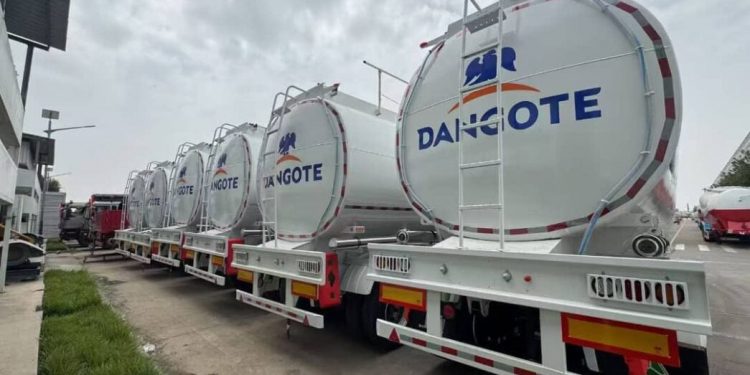The Dangote Petroleum Refinery has announced another reduction in petrol prices and confirmed that it will commence free direct supply of Premium Motor Spirit (PMS) to select states from Monday, September 15, 2025.
According to a statement released on Thursday, petrol will be supplied directly to 11 states at varying retail pump prices. Lagos, Ogun, Oyo, Ondo, Osun, and Ekiti will access the product at N841 per litre, while Abuja, Delta, Rivers, Edo, and Kwara will purchase at N851 per litre. The gantry price has been set at N820 per litre.
To ease distribution challenges, the refinery will provide free delivery of PMS to registered filling stations in the participating states, with plans to expand coverage nationwide in the coming months. Station operators have been invited to register in order to benefit from the new supply scheme. The initiative is expected to strengthen distribution networks, reduce supply disruptions, and revive dormant petrol stations across Nigeria.
Africa’s largest refinery, with a capacity of 650,000 barrels per day, began operations in 2024 with the goal of cutting Nigeria’s dependence on imported petroleum products. In July 2025, the company received 4,000 CNG trucks under a N720 billion programme designed to distribute 65 million litres of refined products daily, save the country over N1.7 trillion annually in energy costs, and generate more than 15,000 jobs.
The rollout of nationwide distribution was originally scheduled for August 15, but was delayed to September 15 due to industry disruptions. Earlier this month, the Petroleum Products Retail Outlet Owners Association of Nigeria issued a three-day ultimatum over concerns about market fairness, while the Nigerian Union of Petroleum and Natural Gas Workers embarked on a two-day strike.
The dispute was resolved after a meeting brokered by the Department of State Services, which brought together the refinery’s management, labour leaders, and government officials. A Memorandum of Understanding was signed, securing agreements on unionization, protection of workers, and fair competition in the downstream sector.
The refinery’s latest move marks a significant step toward stabilizing Nigeria’s fuel supply chain and advancing its energy security ambitions, with expectations that more states will be included in the coming weeks










